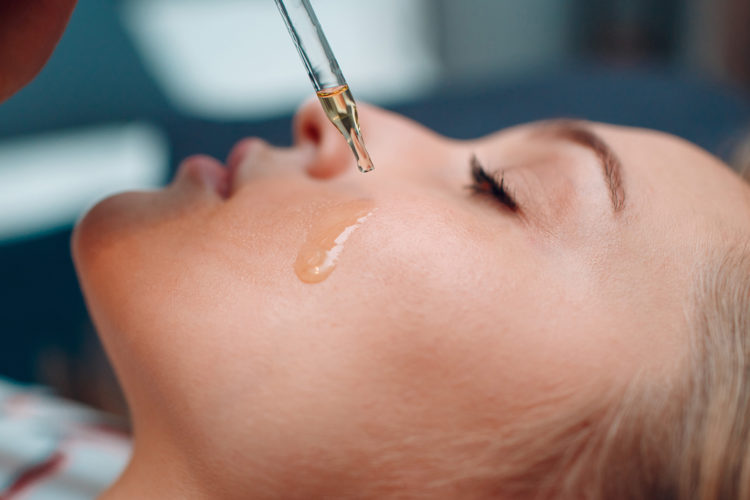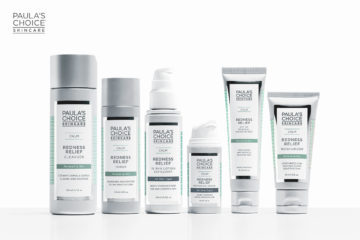Plant Oils & Essential Oils: Are These Facial Oils Really Good for Your Skin?

One of the newest hypes in skincare are about facial oils like Argan, Jojoba, and Squalene. But for those of us with oily skin or live in tropical climates like Singapore, when we hear the word “oil”, we instinctively shy away from these products. In this guide, we’ll be going through the benefits of oils and their main differences. While oils are indeed generally recommended for dry and/or dehydrated skin, we’ll share a couple of ways for those with oilier skin to get their benefits as well!
What are Facial Oils?
Facial oils are oils that are typically extracted from plants – usually from their flowers, bark, or fruits. They are touted for their wide range of benefits which include: soothing skin, nourishing skin, and smoothing it. Plant oils are a rich source of antioxidants and fatty acids which allow it to deliver these claimed benefits.
These oils work as occlusive – which basically means that it creates a barrier to help your skin retain its moisture. Their antioxidant content also helps your skin to protect itself from environmental damage. However, understand that facial oils do not ‘moisturize’. They do not deliver many essential or skin-restoring ingredients to skin, so we do not recommend them as a direct replacement for your moisturizer.
While all plant oils do carry compounds which can deliver benefits, a group of them have irritation potential which we believe outweigh these benefits!
Are Essential Oils Good for Skin?
Plant oils are categorized into two groups, non-fragrant plant oils and fragrant plant oils – or more commonly known as Essential Oils. While essential oils may smell good and can have a calming effect when used externally via aromatherapy, the story differs when it comes to applying it to skin.
Plant oils are compounds which are made up of up to 60 different components. What gives essential oils its fragrance are the components which are most volatile. What volatility does for the skin is to aggravate it – which leads to irritation, which we know is bad for skin!
The problem comes then when answering the question: do essential oils not deliver benefits for skin? The answer to that is yes it does, but you cannot separate the components which irritate from the components which have benefits. Due to that, we highly recommend steering away from using essential oils on your skin, especially citrus oils (lemon, grapefruit, etc.) and mint (wintergreen, peppermint, etc.) oils.
The good news is that: there are many non-essential fragrant oils to choose from which can give you results without the risk of any irritation. These are the plant oils without the volatile component which is responsible for releasing fragrance.
How to use Facial Oils for Skin?
Facial oils are not substitutes of the core products in a routine which should consist of a cleanser, exfoliant, and moisturizer (both daytime and nighttime). Instead, they are great options to augment your current routine for additional benefits. You can apply them directly on to your skin, or mix them with your serum, treatment, or moisturizer. But, do not mix it with your daytime moisturizer as it will dilute the effectiveness of the SPF.
Although we have recommended some oils below for selected skin types and concerns, understand that there is no one oil which can be a miracle solution to your problems. While you can choose a single type of oil suitable for your skin type or concerns, we strongly believe that a cocktail approach with multiple blends would deliver maximum benefits.
Double Cleansing:
Double cleansing is a technique gaining popularity recently which started mainly in Korea and Japan. It involves 2 cleansing steps: the first step is primarily to remove makeup using either an oil-based cleanser, cleansing cloth, or micellar water; the next step is just following up with a regular cleanser to remove any leftover impurities and to cleanse your skin.
Double cleansing is definitely not a necessity. However, there are certain situations which we would highly recommend it. If you are the type to wear heavy makeup and mineral sunscreens which contain titanium dioxide and/or zinc oxide, then double cleansing can help ensure you get all of that off before you move on to the next steps in your routine.
It’s very important to fully remove all traces of your makeup and sunscreen as that will ensure the following products in your routine can work as intended.
What Oils are the Best for Skin?
If you have dry and/or eczema prone skin:
The easiest and most straightforward way is to mix a bit of the oil into your nighttime moisturizer or use it right before your moisturizer if you don’t want to mix it.
Choose heavier oils which can better help moisturize your skin such as:
Coconut Oil which is naturally high in saturated fatty acids. This make it a great option for very dry skin. Its oily feel helps skin retain moisture for a longer time.
Olive Oil while mostly used for cooking, it can benefit skin due to its richness in 3 key fatty acids: oleic acid (Omega-9), palmitic acid, and linoleic acid (Omega-6). While still good for dry skin, it’s not as thick and heavy as coconut oil.
If you have dehydrated skin:
A common misconception is that dehydrated skin is a skin type – it’s not! Dehydrated skin is a skin concern. You can have oily skin yet dehydrated. It’s commonly described as your skin feeling oily on the surface but dry on the inside.
Argan oil is a great option for dehydrated skin, especially if you have oilier skin. Argan oil is lighter than olive oil and has a higher linoleic acid content – which can deliver more benefits to oilier skin types as they tend to have lower linoleic acid levels compared to drier skin.
If you have dry and dehydrated skin, you can opt for Argan oil, or the other oils mentioned above.
If you have oily or combination skin:
Those with oily skin sometimes think that you need to remove as much oil as you can to control it. In fact, doing so only makes oily skin even oilier! Overly stripping skin of your natural oils only tells it to produce even more.
On the other end of the spectrum, people with oily skin think that using any oil-based products on their skin will make it even oilier and clog their pores. However, if you choose the right oils, and use them wisely, they can be a great addition to your skincare arsenal.
Grape Seed Oil is lightweight and packed with potent antioxidants like resveratrol, grape seed oil is great for those with combination skin, especially when used around the drier area.
Jojoba Oil’s fatty acids and their relatively small particle size allow them to easily absorb into skin’s uppermost layers. As such, this plant oil tends to feel less greasy and is easy to spread over skin.
Are More Expensive Oils Better?
Well, yes and no.
Not all oils are created equally. Brand A’s Marula Oil can differ from Brand B’s Marula Oil. The content in oils can differ based on a wide range of factors, but mainly: plant source and manufacturing process.
Typically oils can be extracted from parts of the plans through two main processes – hot pressing and cold pressing. When looking for facial oils that are single oils, look out for cold pressed ones. As the name suggests, cold pressing does not introduce excessive heat during the process of extraction which can change the color, texture, and properties of oils. The best quality of oils are usually extracted via cold pressing.
While some brands may claim benefit over their method of extraction over another, in general you can get any generically branded oils to save money (for single oils). The difference would be negligible, and it would be just as effective!














